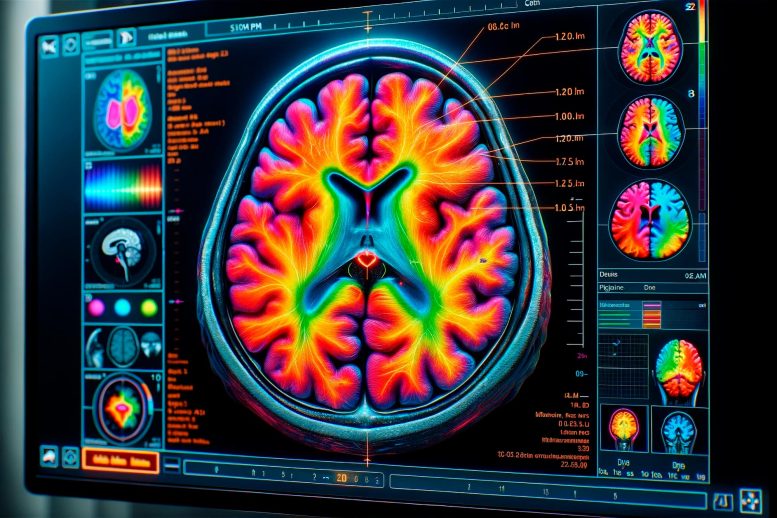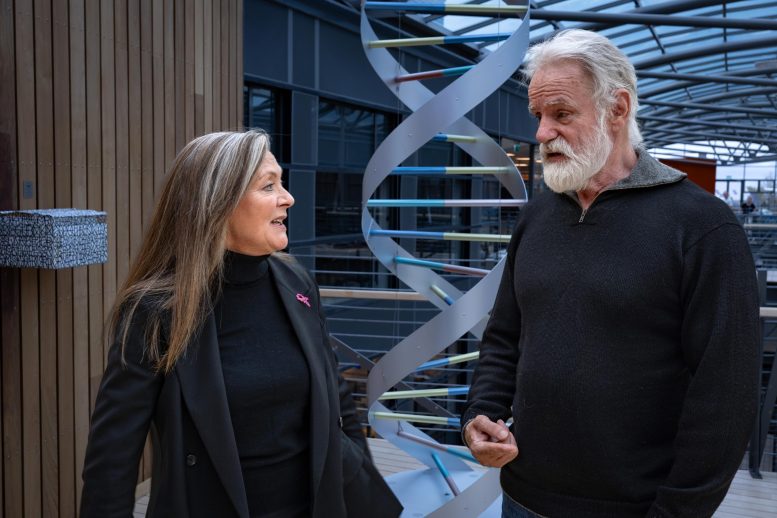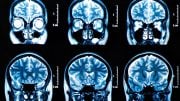
A study in Nature Genetics examined the genetics of over 1.3 million individuals, uncovering 44 migraine-related genetic variants and suggesting new therapeutic pathways for treatment.
A new study of migraine reveals new biological pathways for treatment.
A large international study led by deCODE Genetics on the genetics of migraine provides novel insights into the biology of migraine enabling detection of rare variants protecting against migraine, opening an avenue for potential development of novel drug targets.
In a study published today in Nature Genetics, a group of international scientists led by deCODE Genetics in Iceland, a subsidiary of Amgen Inc, analyzed genetic data from over 1,3 million participants of which 80 thousand had migraine. The scientists focused on detecting sequence variants associated with the two main subtypes of migraine: migraine with aura (often referred to as classical migraine) and migraine without aura. The results highlight several genes that affect one of these migraine subtypes over the other, and point to new biological pathways that could be targeted for therapeutic developments.
Migraine: A Widespread Chronic Pain Disorder
Migraine is among the most common chronic pain disorders worldwide, with up to 20% of adults affected. Although recent advances have been made in studies of the genetics and underlying biology of migraine and new treatments recently developed that are effective for many migraine sufferers, they do not work for all types of migraine
Novel Genetic Associations and Variants
The study revealed associations with 44 variants, 12 of which are novel. Four novel migraine with aura associations were revealed and 13 variants associated primarily with migraine without aura. Of particular interest were three rare variants with large effects pointing to distinct pathologies underlying different types of migraine. Thus, a rare frameshift variant in the PRRT2 gene confers a large risk of migraine with aura and with another brain disease, epilepsy, but not of migraine without aura.

Kari Stefansson CEO of deCODE genetics and Gyda Bjornsdottir leader of the project on behalf of deCODE genetics. Credit: deCODE genetics
In SCN11A, a gene known to play a key role in pain sensation, the scientists detected several rare loss-of-function variants associated with protection effects against migraine, while a common missense variant in the same gene is associated with modest risk of migraine. Finally, a rare variant pointing to the KCNK5 gene, confers large protection against severe migraine and brain aneurysms, either identifying a common pathway between the two diseases or suggesting that some cases of early brain aneurysms may be misclassified as migraine.
Significance of the Study
“What makes our study unique is that it includes large datasets from sequenced individuals enabling detection of rare variants protecting against migraine, potentially opening an avenue for development of novel drug targets,“ says Kari Stefansson CEO of deCODE genetics.
Reference: “Rare variants with large effects provide functional insights into the pathology of migraine subtypes, with and without aura” by Gyda Bjornsdottir, Mona A. Chalmer, Lilja Stefansdottir, Astros Th. Skuladottir, Gudmundur Einarsson, Margret Andresdottir, Doruk Beyter, Egil Ferkingstad, Solveig Gretarsdottir, Bjarni V. Halldorsson, Gisli H. Halldorsson, Anna Helgadottir, Hannes Helgason, Grimur Hjorleifsson Eldjarn, Adalbjorg Jonasdottir, Aslaug Jonasdottir, Ingileif Jonsdottir, Kirk U. Knowlton, Lincoln D. Nadauld, Sigrun H. Lund, Olafur Th. Magnusson, Pall Melsted, Kristjan H. S. Moore, Asmundur Oddsson, Pall I. Olason, Asgeir Sigurdsson, Olafur A. Stefansson, Jona Saemundsdottir, Gardar Sveinbjornsson, Vinicius Tragante, Unnur Unnsteinsdottir, G. Bragi Walters, Florian Zink, Linn Rødevand, Ole A. Andreassen, Jannicke Igland, Rolv T. Lie, Jan Haavik, Karina Banasik, Søren Brunak, Maria Didriksen, Mie T. Bruun, Christian Erikstrup, Lisette J. A. Kogelman, Kaspar R. Nielsen, Erik Sørensen, Ole B. Pedersen, Henrik Ullum, DBDS Genetic Consortium, Gisli Masson, Unnur Thorsteinsdottir, Jes Olesen, Petur Ludvigsson, Olafur Thorarensen, Anna Bjornsdottir, Gudrun R. Sigurdardottir, Olafur A. Sveinsson, Sisse R. Ostrowski, Hilma Holm, Daniel F. Gudbjartsson, Gudmar Thorleifsson, Patrick Sulem, Hreinn Stefansson, Thorgeir E. Thorgeirsson, Thomas F. Hansen and Kari Stefansson, 26 October 2023, Nature Genetics.
DOI: 10.1038/s41588-023-01538-0
The joint effort of the international research team was led by scientists at deCODE genetics in Iceland and included collaborating scientists from the Copenhagen Hospital Biobank and Danish Blood Bank Study, the HUSK study in Norway, the Intermountain Health study in the US, and data generated by the large population-based studies from the UK Biobank and FinnGen.
Based in Reykjavik, Iceland, deCODE is a global leader in analyzing and understanding the human genome. Using its unique expertise and population resources, deCODE has discovered genetic risk factors for dozens of common diseases. The purpose of understanding the genetics of disease is to use that information to create new means of diagnosing, treating, and preventing disease.









Be the first to comment on "Migraine Mysteries Unveiled: New Genetic Pathways and Treatment Avenues"